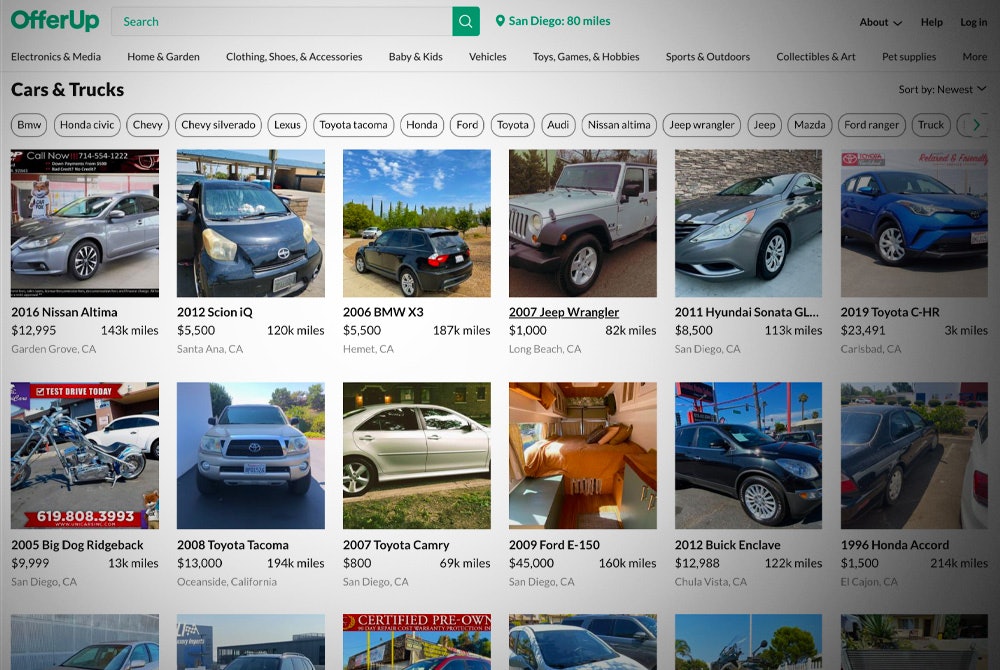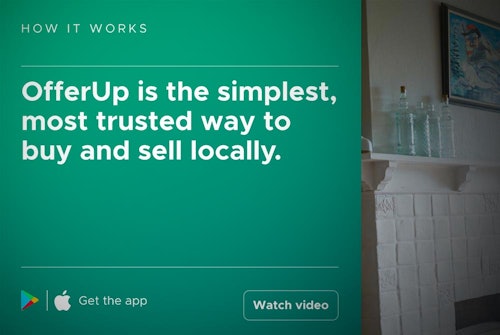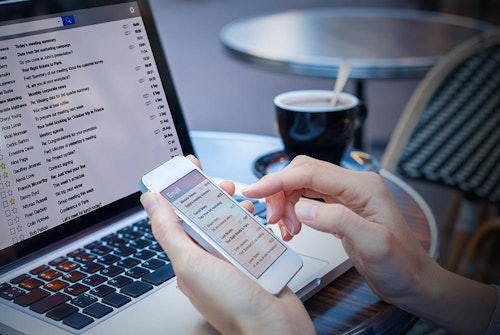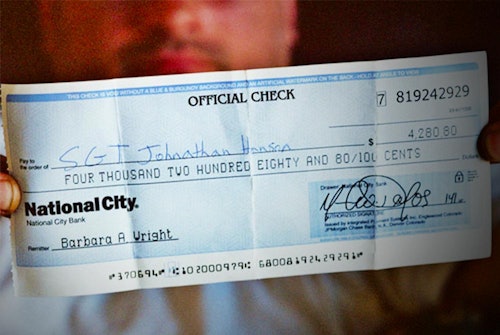OfferUp In Depth
- Common Types of OfferUp Scams & How to Avoid Them
- Red Flags of OfferUp Scams
- How You're Protected from OfferUp Scams
Launched in 2011, OfferUp was created to compete directly with online garage sale sites like Craigslist and eBay. Unfortunately, OfferUp has its fair share of issues like these sites, with OfferUp scams becoming more common.
The company focuses primarily on mobile users, with the business being done almost exclusively through an app. You can pay for your item at the in-person meet-up or through the OfferUp app directly, which offers some protection for your transaction. Direct messages can also be sent between buyer and seller through the app.
OfferUp also features seller profiles, including reviews, verification badges, average response time, and trusted connections. Unfortunately, scammers still run rampant on the platform, even with these safety features.
It's important to verify links and contact details to beat imposters.
Common Types of OfferUp Scams & How to Avoid Them
Unfortunately, getting scammed on OfferUp is not a unique experience. Like its rivals, the company's format opens itself up for scammers to take advantage of the platform's users.
Some of the more common OfferUp scams that you should be aware of include:
- Payment scams
- Shipping scams
- Car sale scams
- Phishing scams (that lead to identity theft)
OfferUp Payment Scams
Payment is always the trickiest part of an online transaction. OfferUp attempts to ease that process by offering in-app payment methods, though many people may operate outside that option.
Paying with cash when making a transaction in person might be a good option. But it's a red flag when a seller asks you to transfer money to them online outside of the OfferUp app.
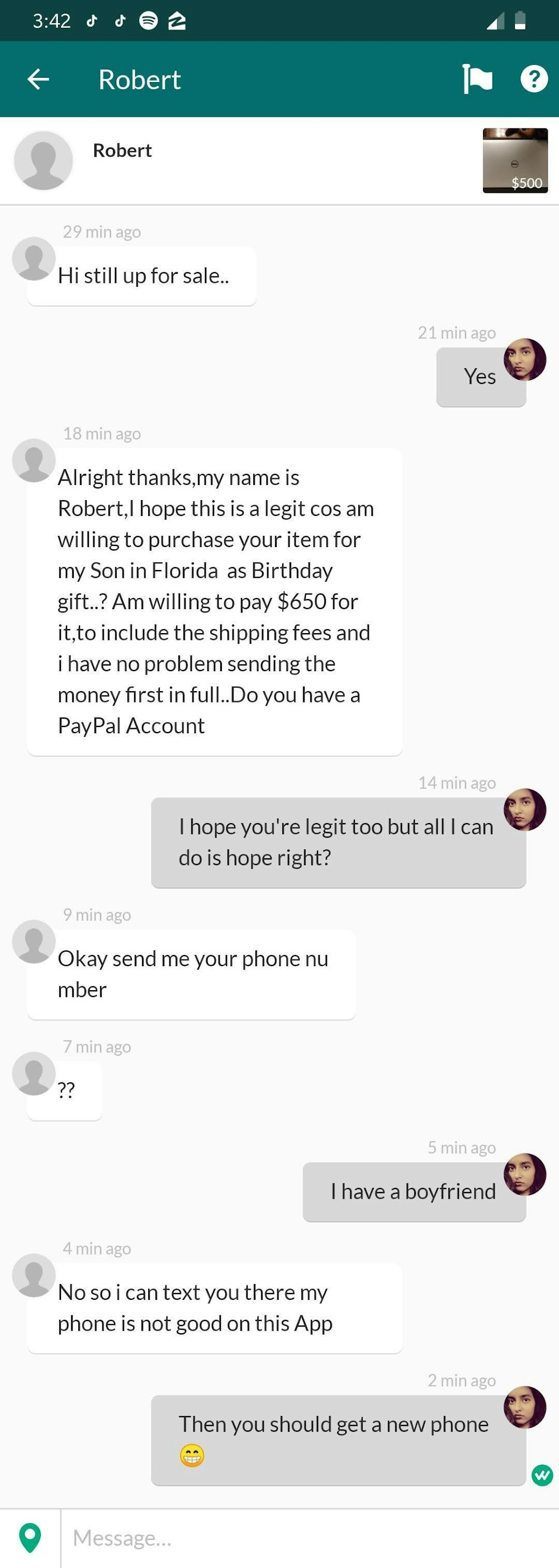
You may send them money through Venmo, Cash App, Zelle, or other similar apps, only to watch the seller disappear without ever delivering the goods. Most of the time, payments on these apps are instant and can't be canceled.
When using OfferUp to buy or sell items, the best practice is to complete the entire transaction within the app, including payment. Don't accept any payment outside of the system.
OfferUp Scams (Shipping)
To help make your transaction easier, OfferUp offers a unique service to arrange item shipping on behalf of both parties. The cost is passed on to the buyer (included in the final, agreed-upon total), and a fee for the service is taken out of the seller's cut.
Still, many OfferUp scammers bank on you not knowing about this arrangement. For example, a common scam on the app involves would-be sellers charging you extra or sending you a separate invoice for shipping.
If the seller uses the app's shipping service, all associated fees and payments will be visible directly in the app.
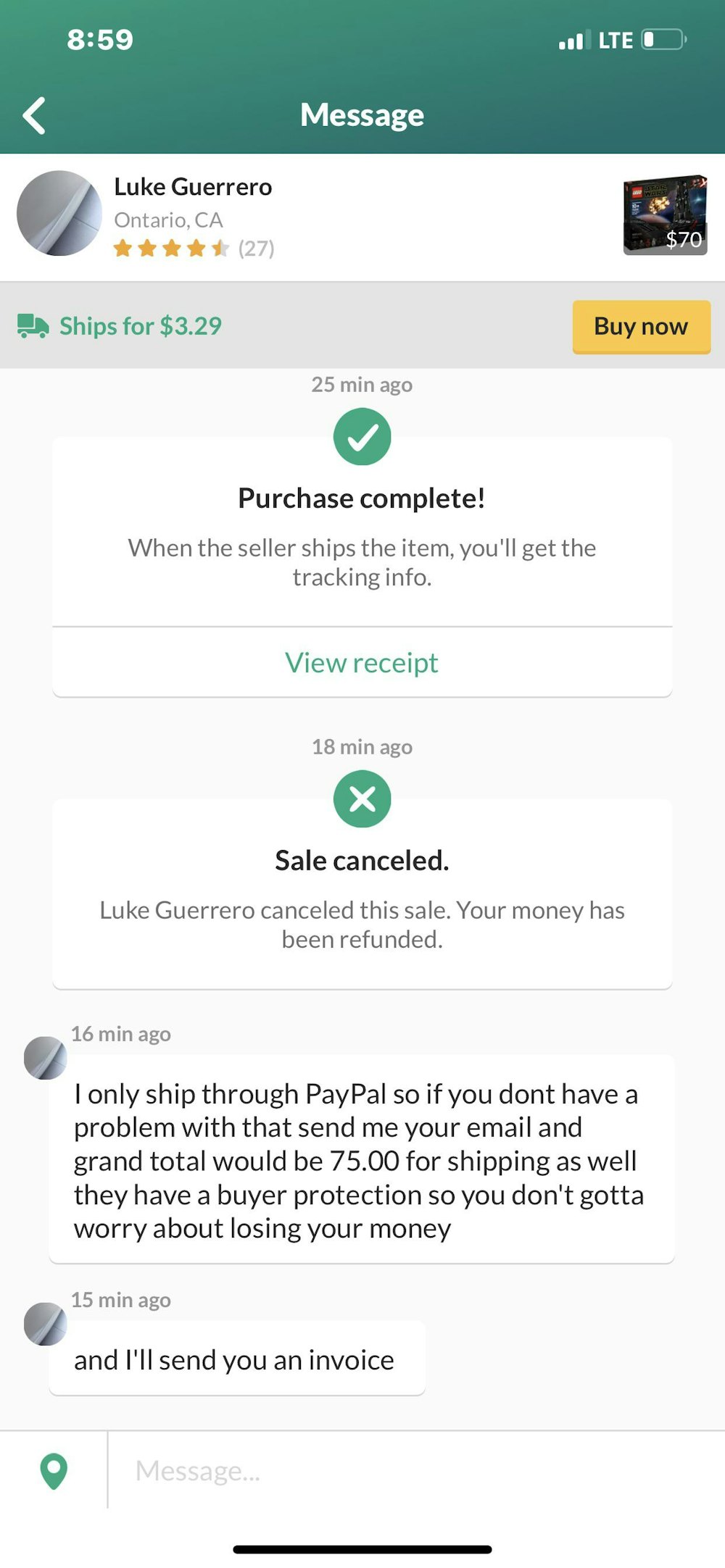
OfferUp Car Scams
Cars are one of the most popular items sold on OfferUp—and one of the most expensive items sold anywhere—making these sales irresistible to scammers.
There are several different types of OfferUp scams involving car sales. Some sellers may attempt to sell stolen cars. They offer you something called a VIN clone to throw you off that fact. This is essentially a vehicle identification number (VIN) that comes from a car of the same make, model, year, and color but not the actual vehicle you're buying.
Sellers also often try to sell cars that are not yet fully paid off without telling you about the lien. Scammers may also use fake titles in these cases to keep you from finding out the truth.

In another version of an OfferUp car scam, a seller will direct you to a fake escrow service to "handle the money" or a phony delivery service that will offer you a shipping number and even updates until the delivery day. Along with the sellers, these companies will then disappear, taking your money with them.
OfferUp offers protection for buyers as long as the purchase was completed and shipped using OfferUp's system. Request a refund directly from the app.
Always Complete the Transaction Within OfferUp
OfferUp offers protection for buyers as long as the purchase was completed and shipped using OfferUp's system. Request a refund directly from the app.
OfferUp Scams Leading to Identity Theft
Scammers will use the OfferUp app to trick you into providing your personal information. They may do this by simply asking for it or sending you to a scam website requiring you to enter your details.
There are a variety of techniques they use for this—sometimes they will say you need to enter your shipping information on an external website, or they want to provide you with insurance for your package. Regardless of what they say, don't believe them.
As long as you complete the entire transaction within OfferUp, you will have some protection. Under no circumstances should you give anyone on OfferUp your:
- Social Security number
- Credit/debit card numbers
- Bank account information
- Passwords
Red Flags of OfferUp Scams
While there are many general types of OfferUp scams, there are a few common red flags to look out for, including:
- Fake user profiles
- Fake invoices
- Fake cashier's check
- Request to take the conversation off the platform
- Payment via non-conventional methods
- A deal too good to be true
- Links to unknown websites
Fake User Profiles
The user profiles offered on OfferUp are a helpful feature, but like any good-faith effort to increase transparency, this, too, can be co-opted.
There's nothing stopping scammers from creating fake profiles and making themselves look better by using other fake profiles to improve their ratings and reviews. A common practice is to claim these fake profiles are military members.
This is helpful for scammers on two counts:
- It plays on the sympathies of many people who earnestly want to support the troops.
- It gives scammers added "proof" to support their story (claiming to be overseas and unable to make a payment in person to direct you toward other payment methods they'll use to scam you).
Being "in the military" can also give scammers leverage to pressure you into sending items more quickly, increasing their chances of successfully scamming you.
Fake Buyer Invoices
As discussed above, scammers posing as sellers can send fake invoices for shipping to get more money out of you. But a similar tactic can be used on the buying end.
A scammer hoping to steal something you're selling may send you a fake invoice and claim that they've made payment. This is a widespread scam when using outside services like PayPal to handle payments. This is another reason why someone asking you to pay them outside of the app or an in-person cash exchange should raise a red flag.
Fake Cashier's Check
One of the oldest scams in the book takes place almost anywhere long-distance transactions are offered, including OfferUp.
The scam involves someone offering to send you a cashier's check as a form of payment. It's not uncommon for these scammers to say they'll pay above the listed price to sweeten the deal.
These checks will be fraudulent, but it may take several days for your bank to inform you of this. Unfortunately, you will have already shipped the item out to the buyer during this time. Sometimes, buyers will also send a cashier's check that's "accidentally" made out for too much money and ask you to wire them the difference.
Request to Take the Conversation Off OfferUp
When users say they want to discuss the sale off the platform, this should make you wary. There should be no reason you can't conduct the transaction fully within the OfferUp app. Scammers will usually try to contact you via email or phone, so there's no proof within the app that they were frauds.
If someone continually asks for your email address or phone number, even if they don't need it for anything, stop talking to them. Do not give them any of your personal information.
Request for Payment Via Unconventional Methods
You should deny it if the seller or buyer requests to make payment via wire transfer, check, gift card, or another non-protected method. Since you don't know these people, they could scam you out of your money or item relatively easily.
A Deal Too Good to Be True
If someone offers you a deal that seems too good to be true, it usually is. Whether you're the buyer or the seller, this can happen in an OfferUp transaction. For example, perhaps someone wants to purchase your item well above your asking price, or maybe someone is selling a pair of designer shoes for a fraction of the original cost.
If a deal ever seems like a genuine steal, look closely for other signs of a scam. When in doubt, cancel the transaction.
Links to Unknown Websites
If anyone ever starts sending you links to other websites, you should be careful. Scammers will often do this, hoping that their victim clicks on the links and enters their information on a fraudulent site. This is a bigger scam to steal your identity, which can take years to recover from.
Once they have your personal information, they can start taking out loans and credit cards in your name, causing you serious financial issues in the future.
How You're Protected from OfferUp Scams
If you've fallen victim to OfferUp scams, don't fret. It's never pleasant getting scammed, but it happens to thousands of people every year—and OfferUp offers several methods for dealing with such issues.
Community MeetUp Spots for In-Person Transactions
If you're meeting someone in person, use a Community MeetUp Spot as a safeguard.
OfferUp works with police stations across the country to designate certain safe and well-monitored areas for exchanges, with more than 450 Community MeetUp Spots available nationwide. You can find more information and maps of these spots by clicking on the green icon on the bottom right hand of your chat screen.
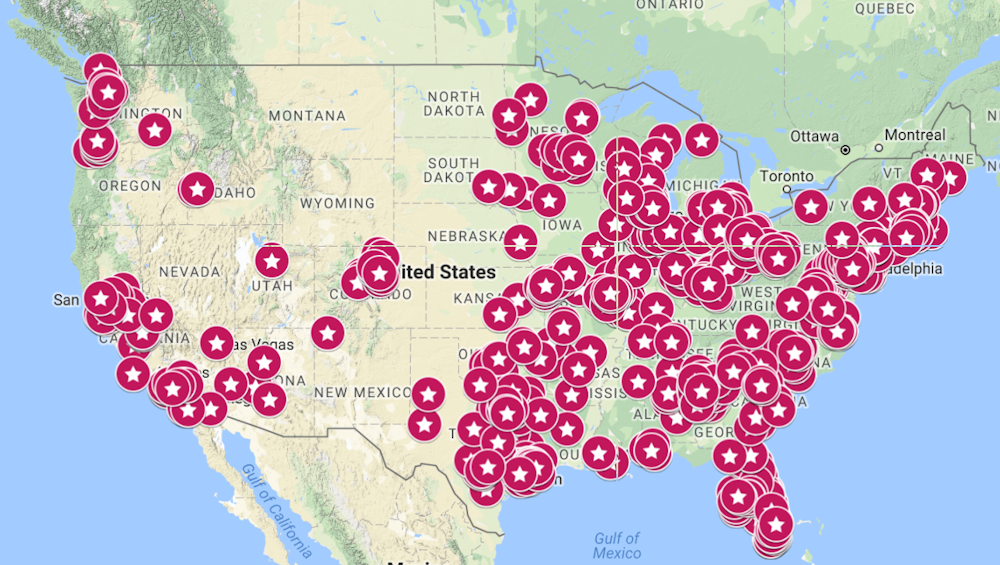
Reporting and Blocking Fraudulent Accounts
If you think you're dealing with a fraudulent account, you can report the user directly to the company by clicking the "Report" button on their profile page. If the person you're dealing with gets abusive, you can also block them on the app.
Reporting Sketchy Merchandise
OfferUp also has avenues for reporting counterfeit, stolen, or recalled merchandise. (The "Report" button should appear on the item's details page.) And, of course, you can always report OfferUp scams to your local authorities.
What You'll Need to Report OfferUp Scams
When reporting fraudulent activity on OfferUp, you'll need details like the user profile of the person you were dealing with and, most likely, screenshots of any discussions you had with them. OfferUp also encourages any users going to the police to ask the officers to contact the company about the fraud event.
But, as always, the best defense is a good offense. So keep your guard up when using OfferUp or any peer-to-peer app, do your research, and always use your best judgment before making your payment or sending your item.
Scams Impacting OfferUp
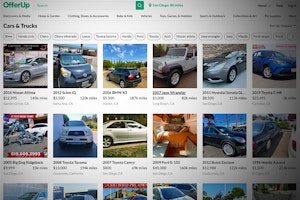
OfferUp Car Scams: Red Flags to Look Out For
Buying a car on OfferUp may be a cheaper option, but it doesn't come without risks.
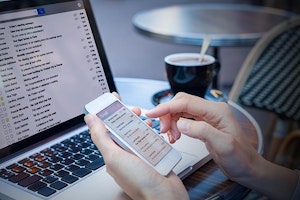
Signs of OfferUp Email Scams & How to Protect Yourself
You can buy almost anything on OfferUp—but unfortunately, you can get sold out just as easily, especially through a number of different OfferUp phishing scams.

Minimize Your Risk of Falling for Online Puppy Scams
Stay cautious when buying pets from private sellers online—many listings could be fake with scammers attempting to steal your money.
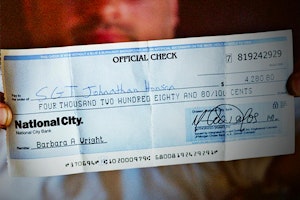
Know the Telltale Signs Of Fake Cashier's Check Scams
When selling items online, accepting a cashier's check for payment can be a risky business as scammers use fake cashier's checks to steal from you.

How to Avoid Fake Tickets to Events, Flights, and More
Buying tickets via sites like Craigslist and Facebook may be the cheaper option, but you also risk buying a fake ticket that won't get you anywhere.
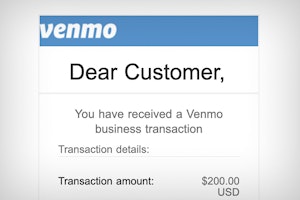
Selling on Facebook Marketplace? Beware of Fake Venmo Emails
Scammers are sending fake Venmo emails to Facebook Marketplace sellers in an attempt to steal login information and money.
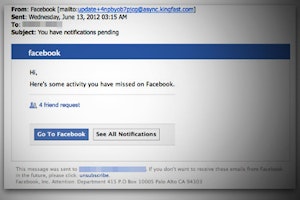
Is That Email Really From Facebook? 5 Foolproof Ways to Spot a Scam
If you ever need to check your Facebook account, always log in directly from the app or by typing in the URL. Don't trust every link you receive in your email.
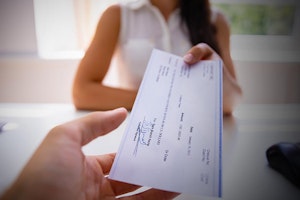
Beware of Fake Cashier's Checks in Craigslist Transactions
Beware of buyers on Craigslist who only want to pay for your item with a cashier's check, then overpay you for your items—they're trying to steal money from you.

Fake Escrow: Craigslist Users Beware of This Common Scam
Escrow services are supposed to keep your money safe, but in this Craigslist scam, these escrow sites will do more damage than good.
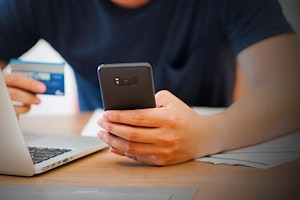
Avoid Paying for a Pet via a Cash App Deposit—It's a Scam!
Keep your money safe by only paying for your new pet once you have the pet in your possession and avoid using Cash App.
Guides To Protect Against Online & Digital Scams

Beat OfferUp Scams and Stay Safe When Buying or Selling
One of the fastest-growing retail channels, OfferUp is a prime target for scammers, taking advantage of private sellers and buyers.
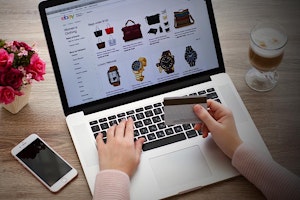
Beat eBay Scams and Stay Safe When Shopping Online
Whether it's a counterfeit product, a sketchy seller, or a price too good to be true, eBay scams are widespread, so it's important to know how to protect yourself.

Common LinkedIn Scams to Watch Out For
LinkedIn has become one of the most impersonated brands and targets of scammers. Learn how to protect yourself and use the platform safely.

How to Spot a Fake Louis Vuitton Belt Before You Buy
You're finally ready to pull the trigger on that Louis Vuitton belt you've been eyeing, but before shelling out the big bucks, use these tips to make sure you're not getting ripped off.

How to Report Craigslist Scams and Protect Your Money
Craigslist scams are more common than we'd like, but there are steps to take to help keep yourself (and others) safe.
News About Online & Digital Scams

Urgent CDC Warning: Eye Drops Linked to 3 Deaths, Loss of Vision
The CDC is warning eye drops users of a rare bacterial infection from 2 brands of eye drops. The infection is resistant to antibiotics and has resulted in the loss of vision, loss of eyeballs and the death of 3 patients.

Banks May Refund More Zelle Scam Victims in 2023
Zelle scams have reached a serious volume. New reports suggest that banks are looking at new refund protections for customers in 2023.

Optus Data Breach - One of the Worst Cyberattacks in Australia
Hackers have gained access to 9.8 million customer records from Optus in Australia, exposing personal information such as driver licence, medicare and passport details.

Roe vs. Wade Overturned: Abortion Rights in Your State
Find out what the overturning of Roe vs. Wade means for abortion rights in your state.
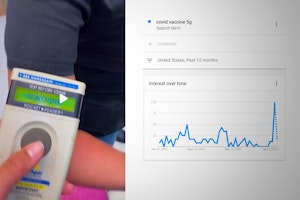
Searches for "COVID Vaccine 5G" Hit All-Time High, But Microchips Definitely Not in Vaccine
The number of people searching for the term "COVID vaccine 5G" on Google has just hit an all-time high, but there's one way to be sure that there are no microchips.
